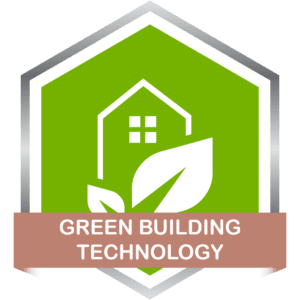About Course
Indoor Environmental Quality – Green Building Technology
If you’re looking for ways to improve the health and happiness of your building’s occupants without having to make major structural changes, I highly recommend perusing the LEED Indoor Environmental Quality credits.
Learn more about the LEED Indoor Environmental Quality credits that can help make a building more pleasant and healthy for its occupants in terms of things like air quality, lighting, noise control, and the overall quality of the occupant experience. Each prerequisite and credit is discussed in detail in this course, along with the technical criteria and methods that are necessary to meet them.
Green building designers, sustainability engineers, contractors, construction managers, water efficiency professionals, and engineers can use the Indoor Environmental Quality-Green Building Technology training course to keep track of the LEED certification process and explore the LEED Indoor Environmental Quality credits, which address key factors such as indoor air quality, lighting, acoustics, and the occupant experience to promote happier and healthier building environments.
The connection between the indoor environment and occupants’ health and comfort is complex. Many variables, such as regional norms and expectations, the activities of the building’s occupants, its location, architecture, and construction, make it more difficult to measure. Nonetheless, there are numerous methods for quantifying the impact a building has on its inhabitants. LEED satisfies the need for prescriptive measurements by balancing these criteria with greater performance-based credit requirements. For instance, a LEED EQ prerequisite will initially address source management, and a subsequent credit will specify an indoor air quality evaluation to measure the actual effect of these measures.
The training course titled “Indoor Environmental Quality: Green Building Technology” examines the LEED Indoor Environmental Quality credits. These credits address important factors such as the quality of the indoor air, the lighting, the acoustics, and the overall experience of the building’s occupants in order to promote happier and healthier building occupants.
The Indoor Environmental Quality—Green Building Technology Training Program was prepared by a Sr. Energy Specialist, Krishnaji Pawar.
specialises in developing sustainable design strategies for Green Building Certification Systems (LEED, GSAS, etc.), Energy Management, Energy Efficiency, Energy Audits, Building Commissioning, Environmental Impact Assessments, and Environmental Management Systems.
This course will go over each Energy and Atmosphere prerequisite and credit in detail, presenting technical requirements as well as strategies for achieving them.
Who this course is for:
- People seeking an in-depth understanding of the Indoor Environmental Quality Categories in the LEED Rating System
- Energy specialists and professionals, including energy managers, energy engineers, facility and business managers, industrial engineers, supply chain professionals, utility officials, consultants, contractors, financial officers, and energy service company professionals, become more aware of and effective at identifying and implementing the best energy management strategies. Architects, urban planners, and landscape professionals
- For students who want to learn more about indoor environmental quality
- looking to gain employment in indoor environmental quality and HVAC design
Key Objectives
- Take note of how the emphasis in the credits is on the environment and how people interact with it.
- Learn how eliminating pollution sources inside can raise your credit score.
- Determine why indoor environmental quality credits are being implemented, what is needed, and how to achieve the best possible results.
- Be conscious of the way in which stricter credit standards result in more effective construction and a more dynamic marketplace.
Beyond Smart Cities is the world’s first marketplace for green technology. It connects millions of sustainability experts, green building experts, energy experts, commissioning experts, health and safety experts, fire safety experts, climate change experts, and green product and technology manufacturers with independent talent from all over the world.
Our mission is to build and support a global community of experts with the highest standards of professional practise in sustainability, green building, energy, commissioning, environment, health & safety, fire safety, climate change, GHG accounting, carbon auditing, and managing GHG emissions.
Course Content
Section 1: Introduction and Course Outline
-
L1. Introduction and Course Outline
10:23 -
L1. Introduction and Course Outline Handout
Section 2: Indoor Environmental Quality
Section 3: Minimum Indoor Air Quality Performance
Section 4: Environmental Tobacco Smoke Control
Section 5: Enhanced Indoor Air Quality Strategies
Section 6: Low-Emitting Materials
Section 7: Construction Indoor Air Quality Management Plan
Section 8: Indoor Air Quality Assessment
Section 9: Thermal Comfort
Section 10: Interior Lighting
Section 11: Daylight
Section 12: Quality Views
Section 13: Acoustic Performance
Section 14: Summary and Resources
Student Ratings & Reviews


